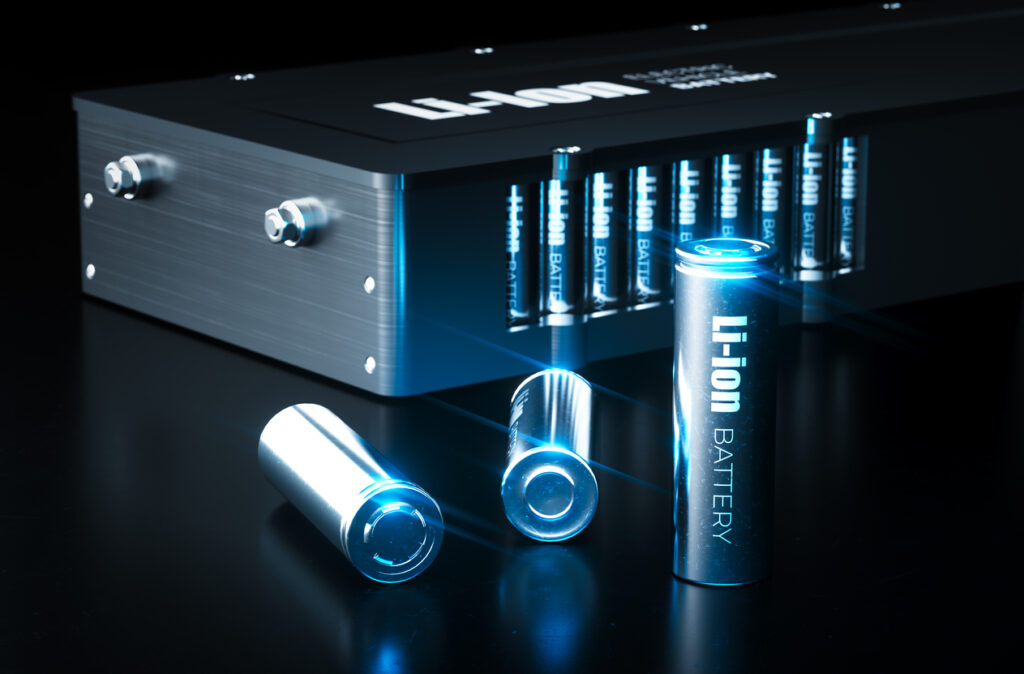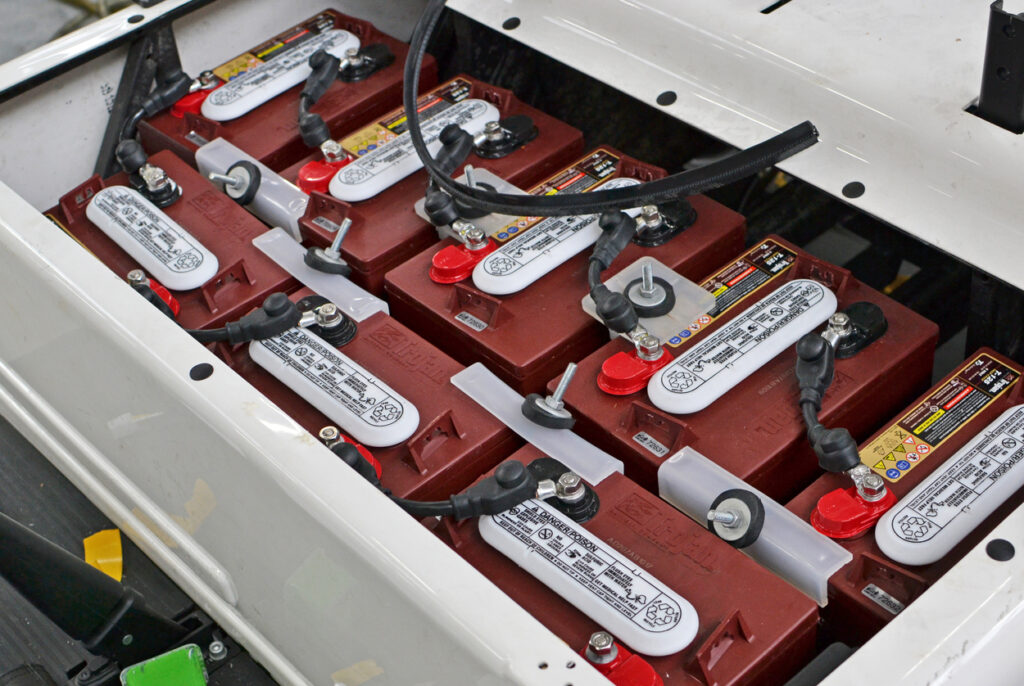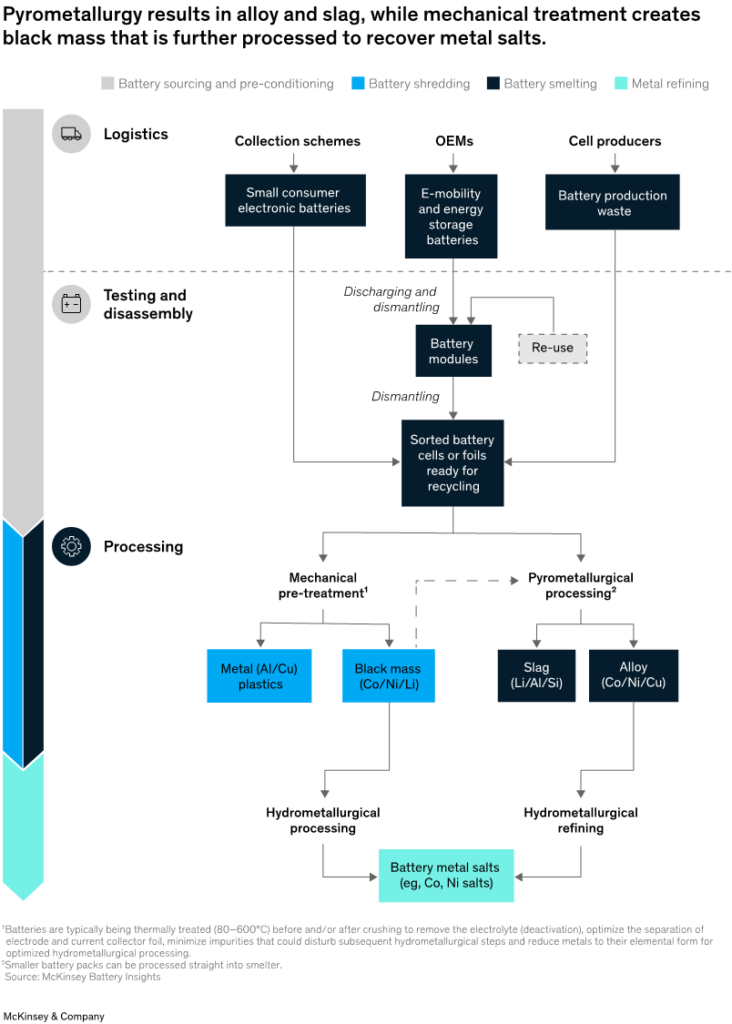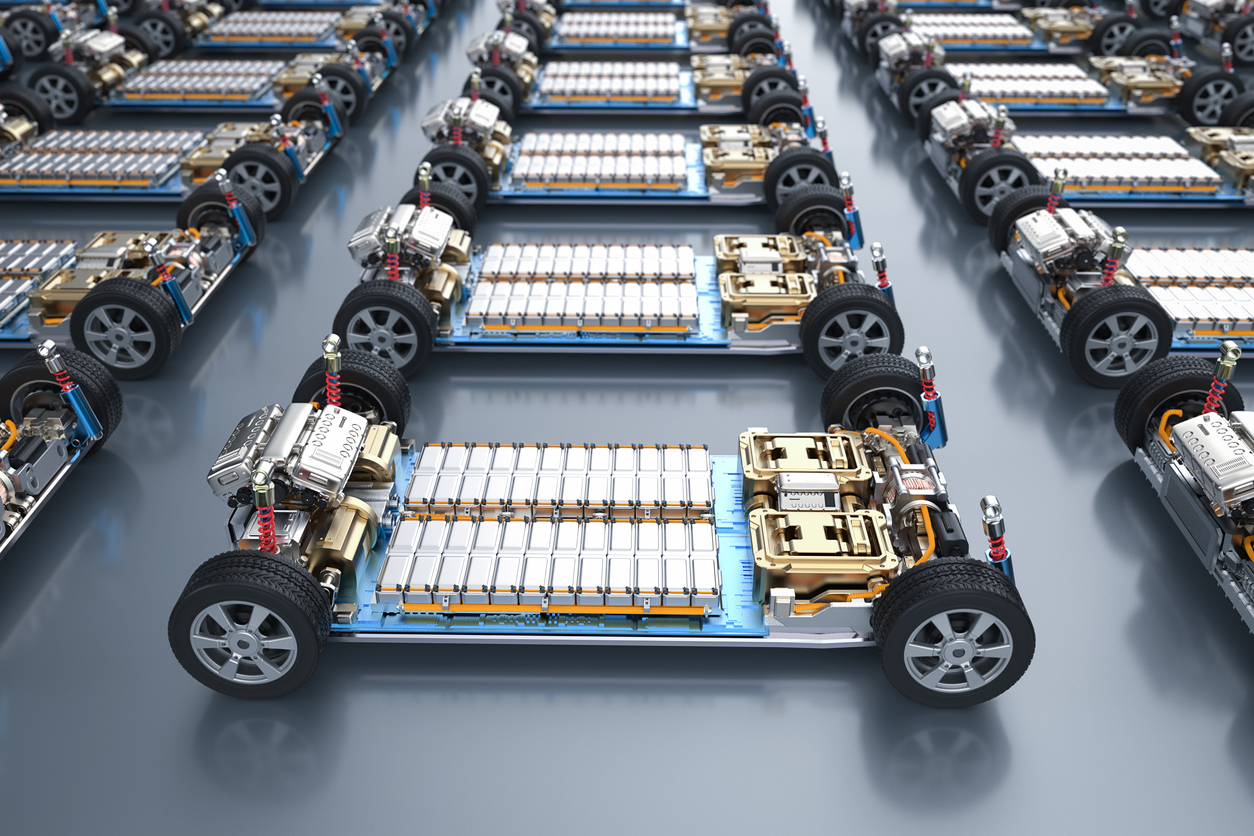Table of Contents
A Journey into the Heart of Electric Vehicles
Are you ready to take a closer look under the hood of an electric vehicle (EV) and learn what powers its remarkable performance? We’ll dive into the world of EV batteries in this fascinating search, highlighting the top 5 types of batteries used in electric vehicles that will power transportation in the future. Get ready for an eye-opening journey!
Types of Batteries Used in Electric Vehicles
An electric vehicle’s (EV) battery powers the vehicle’s heart. However, not every EV battery is made equally! Let’s look into the several kinds that drive these eco-friendly cruisers:
1. Lithium-Ion Batteries
Higher than your average high-tech power bank, lithium-ion batteries are the unsung heroes driving the electric vehicle (EV) shift. They are an amazing combination of materials science, electrochemistry, and engineering, making transportation quiet, effective and clean possible.

Why Li-ion Reigns Supreme?
Among other technologies, Li-ion batteries are unique in their high energy density, allowing for longer ranges for electric vehicles. They stand out due to their remarkable longevity, which endures hundreds of charge cycles. Furthermore, Li-ion batteries redefine convenience by enabling fast charging, which turns refuelling an EV into a quick stop. Their efficiency effectively reduces energy losses, guaranteeing the best possible conversion of electrical energy into motion.
Challenges and the Future
By increasing energy density for longer ranges, lowering costs for broader adoption, and encouraging sustainability through the ethical sourcing of materials and effective recycling procedures, researchers work to improve Li-ion batteries.
2. Nickel-Metal Hydride Batteries
Although lithium-ion batteries presently rule the electric vehicle (EV) market, nickel-metal hydride (NiMH) batteries were a key component of the early electrification of the world. Even though lithium-ion batteries have largely outperformed NiMH batteries, NiMH batteries can still be useful in some situations and have some distinct benefits that are worth investigating.
The Future of NiMH
NiMH research is still expanding while lithium-ion technology breakthroughs push the envelope. The electrolyte and electrode materials’ composition enhancements are intended to increase NiMH’s energy density and lifetime, which may rekindle its use in some EV applications.
3. Lead-acid Batteries
Despite their lengthy history and familiarity, lead-acid batteries occupy a specialised position in electric vehicles (EVs). Although they used to rule the EV scene, advances in lithium-ion battery technology have confined them to secondary roles. To fully appreciate the development of EV technology and its potential for future applications, it is still necessary to comprehend their advantages and disadvantages.

Future Prospects
Research is still being done to improve lead-acid battery performance using new electrolytes and carbon additions, which may increase cycle life and range. Hybrid systems that combine lithium-ion propulsion with lead-acid peak loads for propulsion take advantage of the advantages of both technologies to provide effective, adaptable energy solutions.
4. Ultracapacitors
Electric double-layer capacitors, or ultracapacitors, are becoming more and more interesting options for electric vehicle (EV) energy storage. Although they aren’t quite ready to unseat the current lithium-ion battery monarch, their special qualities present alluring opportunities to improve the efficiency and performance of EVs.
Future Prospects
Research is still being done on better electrode and electrolyte materials to increase capacitance, energy storage, and driving range in electric vehicles. Efficiency is increased in hybrid systems with ultracapacitors by optimizing energy flow. Refining manufacturing processes and increasing production quantities are anticipated to lower ultracapacitor costs, increasing their competitiveness in the EV industry.
5. Solid-state Batteries for Electric Cars
There’s talk about solid-state batteries advancing electric vehicle (EV) battery technology. The range, charging speed, safety, and longevity of present lithium-ion batteries are expected to revolutionise when solid electrolytes are substituted for liquid ones. Let’s examine these intriguing candidates’ technical aspects.
Role in Future EVs
Solid-state batteries can revolutionise electric vehicles and increase their attractiveness by reducing range anxiety and accelerating charging times. Their improved dependability and safety may spur greater uptake, enhancing the user experience. Although more work needs to be done, attempts to incorporate these batteries with the current EV infrastructure aim to facilitate a more seamless transition as these batteries mature.
EV Batteries Recycling Flowchart
Here’s a simplified flowchart outlining the general EV battery recycling process:

Paving the Road Ahead
To sum up, new developments in battery technology will determine the direction of electric car technology. Lead-acid batteries continue to play a specialized role in auxiliary power applications, but ultracapacitors provide intriguing new opportunities for improved power delivery and regenerative braking. Solid-state batteries, on the other hand, have the potential to revolutionize sustainability, safety, and range—truly changing the game.
For responsible recycling of EV batteries and to play a crucial role in closing the loop of this technological revolution, trust Renovar Eco Solutions Pvt Ltd, your partner in sustainable battery recycling. Join us in ensuring a clean and green future for electric mobility.
FAQ
What types of batteries are used in EVs?
Electric vehicles predominantly use lithium-ion batteries, leveraging their high energy density and performance capabilities.
Which battery is used in electric vehicles?
The most common battery type used in electric vehicles is the lithium-ion battery, chosen for its efficiency and suitability for automotive applications.
What are the types of lithium-ion batteries used in electric vehicles?
Various types of lithium-ion batteries are employed in electric vehicles, including lithium cobalt oxide (LiCoO2), lithium manganese oxide (LiMn2O4), and lithium iron phosphate (LiFePO4).
Are there different batteries for electric vehicles?
While there are various battery chemistries, the predominant choice for electric vehicles is lithium-ion due to its superior energy density and overall performance.
What types of batteries power electric cars?
Electric cars are primarily powered by lithium-ion batteries, known for their ability to store and deliver energy efficiently.
Which battery technology is commonly used in electric vehicles?
The most commonly used battery technology in electric vehicles is lithium ion, chosen for its balance of energy density, weight, and overall efficiency.


